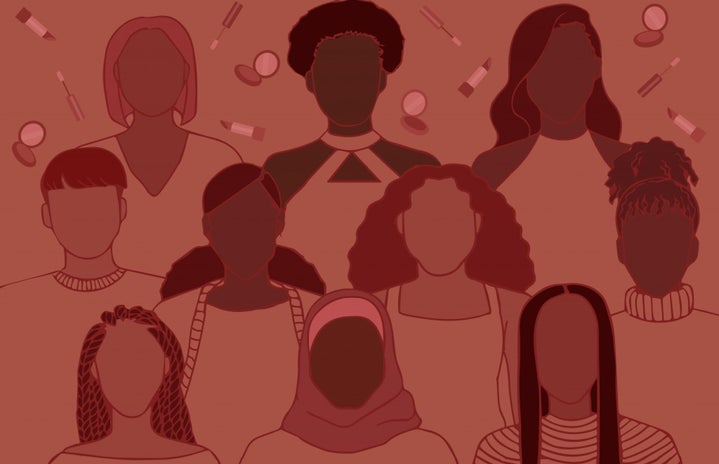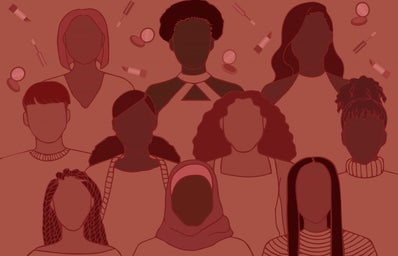Chapter writer Matthew Gray caught up (virtually) with activist, entrepreneur, and model Lucy Beall to hear about some of the exciting work she has been doing in 2020, and about her new campaign Beauty is Not Rare.
Matthew: Could you please tell our readers about your latest project, Beauty is Not Rare?
Beauty is Not Rare is a new social media campaign which aims to create a positive platform to celebrate all bodies in their uniqueness and diversity, challenging the unrealistic and often artificially constructed presentations of beauty so ubiquitous in our society.
The project was formulated by Lucy back at the height of lockdown in April. Working alongside Olivia Vedder and the Epidermolysis Bullosa Research Partnership since then, it finally launched in September.
This is not Lucy’s first foray into activism. Having grown up with Recessive Dystrophic Epidermolysis Bullosa (RDEB, a form of EB), Lucy has now spent over five years spreading awareness about the condition, publishing her first article for The Huffington Post shortly before her seventeenth birthday.
“The catalyst was really when a stranger at the vet’s told me I looked like I’d ‘been mauled by a gorilla.’ That was when I felt I had to speak up.”
Since then, her inspirational career has only continued to reach more impressive heights, with 2020 alone seeing Lucy working alongside celebrity photographers in shoots for Vogue Italia and recording podcasts with Dominic and Harry Holland in her mission to raise visibility and funds for EB and its research.
Central to her latest project is a recognition of the need for intersectionality and representation, as well as a foregrounding of the more “universal” feelings that form part of Lucy’s experience.
“There is a greater chance of being struck by lightning or of winning the lottery twice than having RDEB,” Lucy explains, and yet the stigmatisation that Lucy and others with EB encounter is part of larger and more encompassing problem: “What I go through might be unique, but those feelings I have aren’t.”
Since the launch of the campaign four weeks ago, the hashtag #beautyisnotrare has been gaining momentum on Instagram. “Every day we’re seeing a new person sharing their experience, their story,” Lucy tells me, and searching the campaign on social media, it really is moving to see people from a whole range of backgrounds celebrating both themselves and others. “There is nothing wrong with any body,” Lucy asserts.
This is only the start of the campaign, with plans to release merchandise designed by the New York City-based Wren + Glory that will help fund research with the proceeds.
Matthew: It seems to me that at the core of this project is a philosophy of enabling change through representation.
“Oh, definitely. […] Still with most brands, we are only seeing one type of model. It’s dishonest.”
Lucy tells me a lot more about growing up as a child who could not see herself represented in the media. “A big part of my growing up, was me really learning to be my own role model – because I had to be.”
In many ways though, I sense this lack of representation has also helped nurture the incredible resilience and self-sufficiency that Lucy demonstrates. Perhaps in many ways we could all learn from Lucy’s attitude and learn to champion ourselves. Lucy laughs. “I always have trouble admitting that I’m proud of what I’ve done. Perhaps it’s because I’ve spent so much time in Britain.”
Matthew: As someone who has worked as a model, what are your thoughts about the current climate of the industry?
Lucy is optimistic. “Despite what I’ve said, I definitely think the industry is changing.” She tells me about the practises of various brands she has worked with such as the underargument, who have a system of blind, subversive ‘anti-casting.’
“It’s come a long way in ten years. When I’m at a shoot, I don’t feel I’m there out of ‘tokenism.’”
As for St Andrews… She smiles wryly. “I think the community would really benefit from greater diversity.”
The Beauty is Not Rare campaign has not been Lucy’s only occupation during lockdown. “I’m working on publishing my first novel,” she tells me. It is a coming-of-age work, partly with a goal of bringing this representation into the stories that we share with our adolescents.
“It’s about becoming an adult really, though.” Lucy goes on. Rarely are adults with EB granted any visibility. “When you Google EB, all the first results that come up are about ‘Butterfly Children,’… It made it harder when I was growing up to be broaching adult conversations as all the research and specialists are focused on children.”
Matthew: Just to round-off, since this is Her Campus, I was wondering if you could share with us some of the inspirational women in your life?
“My friend Myra Ali. She’s a journalist with EB. Michelle Hall, who I was lucky to have met when I was eight. She also has EB and works with the EB Research Partnership. Emma Watson – I think she’s great.” However, one woman stands out. “My Mom,” Lucy smiles, “She was a single mother and raised both me and my two older siblings. She’s incredible. A true inspiration.”
Many thanks to Lucy for taking time out amidst a full calendar, dissertation research, and St Andrews housing-induced stress to talk with Her Campus.
Her Campus readers can find out more about the campaign at its official page https://www.ebresearch.org/beautyisnotrare.html and are encouraged to share their own portraits with the hashtag #beautyisnotrare.





